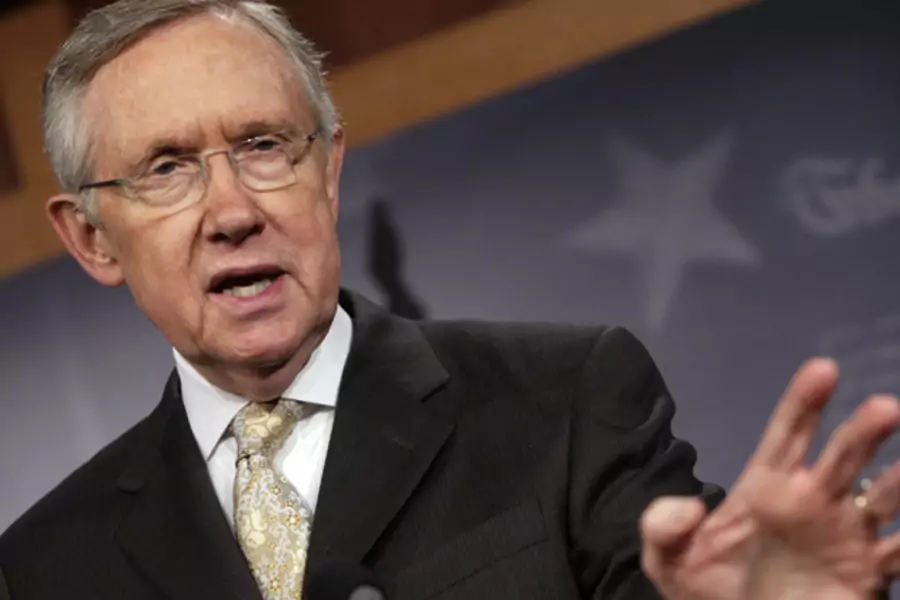Morning Brief: Congressional Leaders Agree to Avert Funding Showdown

More on:
House Speaker John Boehner (R-OH) and Senate Majority Leader Harry Reid (D-NV) agreed to pass a continuing resolution extending government funding for six months once current authorizations end October 1 (TheHill). Total government spending will be set at the expected 2012 level, despite the large deficit. The agreement--if passed in September after Congress returns from its August recess--will prevent another fiscal showdown the month before the national election.
While congressional action lags, a series of year-end fiscal measures known collectively as the "fiscal cliff" could derail the U.S. recovery. This Backgrounder by Jonathan Masters examines the potential global impact.
Debt and deficits. Read more from experts on the challenges in reducing U.S. debt.
Education and Human Capital
Difficulties in Retraining Jobless
The Wall Street Journal discusses the difficulties in retraining the jobless. Government programs have a hard time of predicting what skills are in greatest demand. For instance, in 2008 funding was allocated to programs to teach green energy skills, but declining home prices in 2009 and 2010 deterred homeowners from investing in the types of efficiency improvements jobless workers had been trained for. Training programs also suffer from poor data on outcomes. Bright spots include increasing partnership with major employers to structure training programs.
Education and human capital. Read more from experts discussing ways to improve U.S. education and immigration policies.
Corporate Regulation and Taxation
Car Czar Calls for "Dodd-Frank Do-over"
U.S. financier Steven Rattner, President Obama's top adviser for the auto bailout, called for reform of the Dodd-Frank financial regulatory overhaul, which he believes does not eliminate the threat of catastrophic collapse (NYT). Rattner favors the Volcker rule, which bans proprietary trading by deposit-taking institutions, but sees the Federal Deposit Insurance Corporation (FDIC) as ill-prepared to reorganize failing large, complex financial institutions. Despite the problems he sees, Rattner rejects Sandy Weill's calls for a return to Glass-Steagall's separation of commercial and investment banking.
The 2010 Dodd-Frank Act—one of the most significant regulatory reform measures since the Great Depression—continues to arouse debate over its methods, goals, and implementation. This Backgrounder by Steven J. Markovich examines the financial oversight bill.
Corporate regulation and taxation. Read more from top economists and business experts on solutions for addressing corporate tax reform.
International Trade and Investment
China Denounces U.S. Wind Turbine Tariffs
A Chinese industry group condemned the U.S. Commerce Department's decision last Friday to impose preliminary antidumping tariffs on wind turbines imported from China and Vietnam (WSJ). This fight is just the latest in the larger battle between China and developed economies over clean energy; a tariff fight over solar panels occurred earlier this year. The Commerce Department's actions were motivated by what it saw as unfair government subsidies such as grants and preferential tax treatment.
This CFR Independent Task Force Report on U.S. Trade and Investment Policy encourages the Obama administration and Congress to adopt a “pro-America” trade policy that brings the benefits of global engagement to more Americans.
International trade and investment. Read more from leading analysts on the debate over next steps in U.S. trade policy.
Innovation
Silicon Valley Heads to Capitol Hill
Web giants such as Google, Facebook, Amazon, and eBay are starting a new lobbying group to press their case on Capitol Hill (TheHill). The new lobbying organization, the Internet Association, would promote the interests of internet firms rather than the broader tech field already represented by groups such as TechAmerica and the Consumer Electronics Association. While often supporting each other's aims, sometimes there are conflicts between internet-based firms and other tech firms such as device makers and wireless carriers.
Innovation. Read more on how the U.S. capacity to innovate could play a chief role in economic growth.
The Morning Brief is compiled by Renewing America contributor Steven J. Markovich.
More on:
 Online Store
Online Store
